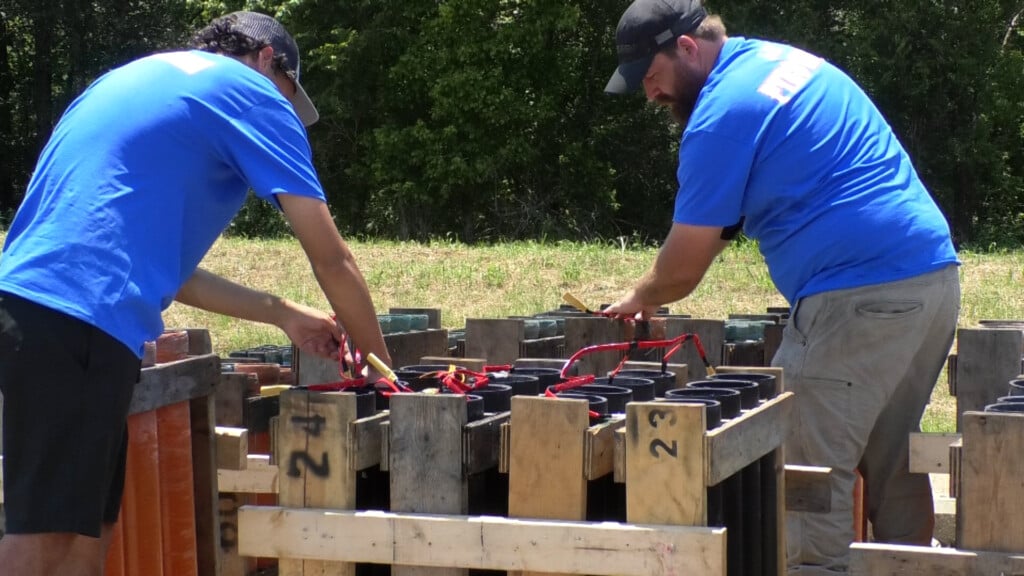Transcript: Senator Marco Rubio on “Face the Nation”
The following is a transcript of and interview with Sen. Marco Rubio on “Face the Nation”
MARGARET BRENNAN: Joining us now is an influential member of both the Senate Intelligence and Foreign Relations Committees, Florida Republican Marco Rubio. Good morning to you, Senator.
SENATOR MARCO RUBIO: Good morning. Good morning.
MARGARET BRENNAN: Overnight, Iran’s military has been readying ballistic missiles across that country here at home. Homeland Security is also issuing a terrorism bulletin. Do you believe now that America is safer after carrying out the strike against Qassem Soleimani?
SEN. RUBIO: Well, I believe that Iran was on the verge of scaling up the attacks that they were aiming against the United States, probably through surrogates in many places, not just in Iraq, but in Syria as well. And the United States had to take action in order to prevent that from happening and to make very clear what would happen if they undertook further attacks down the road. We- we were the subject of, I believe, over 10 or 11 rocket attacks just since October. It was made very clear to the Iranians what would happen and to the IRGC, that Soleimani headed, what would happen if a single American was killed. That happened. They crossed that line. And if you don’t enforce the consequences, they won’t believe it. And they’ll continue to ratchet it up. And as far as the missiles are concerned, I believe they’re probably dispersing them because they fear that a U.S. counter attack would come. But that’s not unusual. And it’s not the first time we’ve seen them take these sorts of actions. And by the way, the fact they even have ballistic missiles tells you why the Iran deal was so flawed. It provided them billions of dollars–
MARGARET BRENNAN: Senator–
SEN. RUBIO: –that they were able to use to fund all that.
MARGARET BRENNAN: But Senator, Qassem Soleimani was responsible for directing mass murder. There aren’t a lot of people in this country mourning him. No one’s disputing that. But the idea of taking this to the level of escalation in a cycle that was already growing in threats of taking out one of Iran’s top leaders has many asking if the administration has a strategy in place to follow up so that there isn’t a cycle that further escalates.
SEN. RUBIO: Yeah. You know, I keep hearing that about the strategy. Here’s the strategy. We are there for an anti ISIS operation and to support the Iraqi government, by the way, at the invitation of the Iraqi government. The Iranians don’t want us there and they are threatening to kill Americans. The president of the United States has an obligation to protect those Americans. Soleimani was a threat. He was not there on a diplomatic visit. He was there on a terrorist mission. He is- this is not some army general with a uniform on conducting operations that- who, by the way, adheres to the rules of law- of war. This is a person who heads a IRGC that uses all of these militant groups, these terrorist groups that they’ve created, all of these covert operations and all these what they think are deniable attacks against the United States that have cost the life of one American already. But hundreds of American soldiers–
MARGARET BRENNAN: Right
SEN. RUBIO: –that were killed and maimed in Iraq for years, so–
MARGARET BRENNAN: Right, which is why I’m saying no one’s disputing that he was a–
SEN. RUBIO: –he was on the battlefield. He was a combatant.
MARGARET BRENNAN: –he was a bad guy. The concern though is are you–
SEN. RUBIO: No, he was a combatant.
MARGARET BRENNAN:–and a combatant. Are you concerned though about what the strategy is here? Overnight, President Trump issued a threat on Twitter to bomb 52 sites in Iran. What is the administration’s strategy? Has it been explained to Congress?
SEN. RUBIO: I think- yes. At least I understand it. And it’s- it’s called self-defense. The United States has over 5000 military personnel in- in- in Iraq. And, and of course, additional personnel in Syria who are under direct threat, not just from Iran, but from their proxy groups. And Iran needs to understand that if we are attacked, whether it’s directly by the Iranians or through these proxy groups, we will respond. This president has shown, he’s not getting a lot of credit for it, but tremendous restraint after 11 rocket attacks, after everything that happened in the shipping lanes, after the- the mines that they placed on those ships after the attacks against Saudi Arabia. He has shown tremendous restraint in not responding to those. But now, we have reached a new level, and it was time to enforce the crossing of these red lines. And this is not new.
MARGARET BRENNAN: So–
SEN. RUBIO: I can keep citing a tweet from last May–
MARGARET BRENNAN: Right.
SEN. RUBIO: –where I talked about all this potentially happening.
MARGARET BRENNAN: So, do you think the president’s failure to follow up on his past threats against Iran, to carry out some kind of action against all the things you just laid out that Iran was doing, did that force his hand on this? Is that what you’re suggesting?
SEN. RUBIO: No, what I’m suggesting is that the Iranians at the end of day do cost and benefit analysis. And for whatever reason, they calculated that the benefits of these continued attacks through the use of these proxy groups, what the benefits of that outweighed the costs. And it was time for the president to reset that analysis for them. And he did through this strike and through the strike last Friday as well. And so it was an important moment and had to happen. But here’s the bottom line. The president of the United States–
MARGARET BRENNAN: Why did it have to happen though, Senator?
SEN. RUBIO: –had actionable, reliable intelligence.
MARGARET BRENNAN: I- I think there are a lot of people–
SEN. RUBIO: Because the president United States had actionable–
MARGARET BRENNAN: –concerned and want to know and you are in a position to perhaps shed some light here. What was the imminent threat? That’s the language the administration is using, to Americans.
SEN. RUBIO: Well, and here’s the- yeah. So, when you gather information like this, it’s highly sensitive. It cannot be disclosed at this time without also putting a danger. Our sources, our methods, losing actions- access to future intelligence of this kind. But here’s the bottom line: if the president of the United States is presented with information that there is an imminent and credible threat that could cost the lives of not a couple hundred potentially hundreds, if not thousands of American servicemen and women and other personnel in the region. The president has an obligation to act. Any president would have an obligation to act. And this president did.
MARGARET BRENNAN: hat was so particular to this intelligence, though I know you can’t get into details, but Qassem Soleimani had been carrying out attacks on U.S. interests for decades and this had been happening in the weeks prior. What was so specific that caused the president to take this specific action? How do you justify that to the American people?
SEN. RUBIO: Well, again, it goes back- justify, I think the question is how would you justify not acting on even the possibility that Americans could die?
MARGARET BRENNAN: Do you know what the threat was?–
SEN. RUBIO: –Cause I can tell you the president does not act. Yeah, not only I know what the threat was, I know what the threats are and have been for months. Again, I refer you back to a tweet, to- to my tweets going back to May of last year when we talked about this. This is not something overnight that woke up one morning and said, let’s let’s start attacking Americans. This is an ongoing pattern of escalation in which they use proxy groups to carry out what they believe are deniable attacks. They can kill Americans.
MARGARET BRENNAN: Right.
SEN. RUBIO: They can deny it was them. But we know it was them. They know we know it was them. Everybody else knows it was them. Some of these countries around the world pretend it wasn’t them–
MARGARET BRENNAN: Right.
SEN. RUBIO: — so they don’t have to get out of the Iran deal. But everybody knows it was them and they think they can ratchet that up without consequence. They thought they could get away with it because–
MARGARET BRENNAN: What did–
SEN. RUBIO: –we’re distracted by our domestic politics because we’re so divided internally, we’re not going to do anything about it. And that is an open invitation to kill more Americans. And if that had happened,–
MARGARET BRENNAN: Yeah.
SEN. RUBIO: –what this show would be about today, is how could the president have allowed hundreds of Americans to be killed and not have done something to prevent it ahead of time?
MARGARET BRENNAN: Okay so you–
SEN. RUBIO: That’s what the show would be about.
MARGARET BRENNAN: You- you say–
SEN. RUBIO: I’d rather do this show than that show.
MARGARET BRENNAN: So you say- you know the threat, but it can’t be shared at this point with the American people or broadly with Congress. I want to ask you specifically, that’s something you did share. You tweeted that Qassem Soleimani was plotting a coup in Iraq. What did you mean by that?
SEN RUBIO: Absolutely. If you think about what his strategy is, his strategy is to put in place a government in Iraq- in Iraq, friendly to the Iranians, almost a puppet state, so they can turn the entire country of Iraq into a platform to attack American interests around the world. This is not about governance. It’s not about us putting in place someone in Iraq that we want. It’s about his desire to put in place a government and leaders in Iraq that allow him free reign to use Iraq as a-
MARGARET BRENNAN: So not a- not–
SEN. RUBIO: –as a platform to carry out attacks against the United States.
MARGARET BRENNAN: So more of the same, the U.S. and around jockeying for powers? What you meant. Um–
SEN. RUBIO: No but in this case, there wouldn’t be any jockeying because he would be- he wants the control, he wants to have leaders that are friendly to him, expel us, and then they can use Iraq as a base of operations in combination with Syria and Lebanon to continue their expansionist desires in the region and to drive us out, and- and to threaten our allies.
MARGARET BRENNAN: And you actually think Iran’s going to stop doing that now that Qassem Soleimani’s dead?
SEN. RUBIO: Well, I think that Iran now has to sit there and say we are- well, how far are we now willing to go when we know that our adversary is far more powerful than we are? That in the end if there is a war- which I do not want. I’m not advocating an invasion of Iran. I’m not advocating we bomb Tehran offensively that we take action or invade them or anything of that nature. I am saying that it has to be clear to the Iranians that if they take actions against the United States directly or through these proxies, we will hold them responsible and we will act. And if that is not set in stone and they do not believe that then Americans will die, then we will be in danger. If that calculus does not exist the Iranians will act against us- they will kill as many Americans as they think they can get away with. And we have to make them understand that we are serious when we say we will do things if they act. Everything the president is warning about is all defensive. He is not saying Congress, I need 100,000 American troops to invade Iran. That’s why all this talk about war powers and congressional authority is so silly. President’s not talking about invading Iran. He’s talking about responding to anything Iran may do in the future. And the president has not only the full authority to do that, but an obligation to do that.
MARGARET BRENNAN: Another topic here, Senator. President Trump’s expected to sign a trade deal with China, January 15th. You’ve been vocal in your criticism of that country’s continued human rights abuses. Should there now be room cleared for the U.S. to sanction Beijing’s leaders for some of those human rights abuses, including rounding up Muslim minorities in concentration camps as the Pentagon describes it?
SEN. RUBIO: Absolutely. Absolutely and I hope we can get a deal done with the House to find- they passed a version of a Uighur human rights bill. We have our version they’re pretty close so we can get something done and signed- look, the trade issues with- with China are not going to be the subject of one deal. This is a major reordering of our relationship to try to bring some balance and symmetry to it. But I think the human rights issue and the geopolitical issues are separate from those they’re not intermingled here. I will never accept the notion that somehow in order to be able to sell them more things, we have to look the other way on some of the grotesque human rights violations that we’re seeing systemized on their part, both in the Qinghai province of- throughout China in general, but also in places like Hong Kong as well. So I will continue to work on that front because I don’t think the two issues are related.
MARGARET BRENNAN: Senator Rubio, thank you for joining us.
SEN. RUBIO: Thank you.
MARGARET BRENNAN: And we’ll be right back.





Leave a Reply